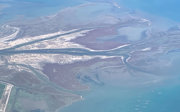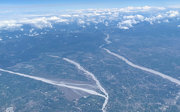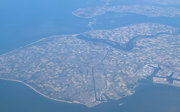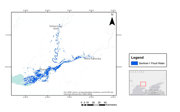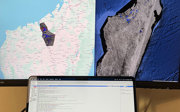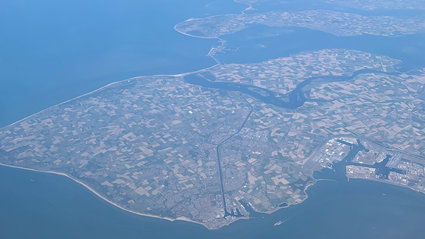
Q&A with Ben Kosky
Read our Q&A with the 2025 Alfred Steers Dissertation Prize winner, Ben Kosky.
Ben Kosky has received the Alfred Steers Dissertation Prize 2025 for an outstanding undergraduate dissertation in geography: 'Beyond the clouds: leveraging SAR and cloud computing for rapid flood mapping'.
Geography is such a broad subject. [...] It can be challenging at times, but the variety and relevance of what you study makes it a really rewarding subject.Ben Kosky
How did you become interested in your area of research?
"I really enjoyed learning about natural disasters, and my degree introduced me to satellite imagery and its many applications. I became especially interested in flooding, particularly how a changing climate is impacting the frequency and magnitude of events.
"This led me to explore how satellite data could be used to rapidly map floods around the world after they occur. I became immersed in the research, identifying gaps in existing approaches and the need to better support non-technical users."
What has been the highlight of your studies, regardless of how big or small, so far?
"My dissertation was definitely the highlight of my studies. It pushed me to stay organised, learn new tools and think creatively about a topic I hadn’t explored in depth before.
"I really valued the input of my tutors, Dr Liam Taylor and Dr Brian Irvine, who got the right balance between guiding me on how to approach my topic and challenging me on my initial conclusions.
"Receiving the Alfred Steers Prize was a real honour and reflects the platform the University of Leeds Geography Department offers its students."
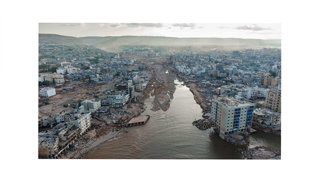
What projects are you working on right now? What are you looking forward to in the future?
"I’m looking at how I could further develop my dissertation into a product to help rapidly map and assess flood risk. A key focus was creating an accessible, cloud-based approach that does not require technical expertise or high-end hardware, making it usable in lower-resource settings.
"Given flood risk affects decision-making across many sectors and regions, and climate change is making events harder to predict, there’s real value in delivering fast, intuitive insight to those who need it most."
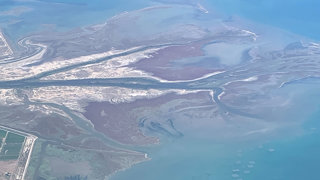
What do you do now and how would you describe your interests?
"I’m currently working at fast growing company, where I’ve been learning how to translate complex modelling into clear insights that help users understand the true impact of their decisions and deliver financial return on their investment.
"It has taught me a lot about how to commercialise data-driven projects in ways that are both practical and impactful."
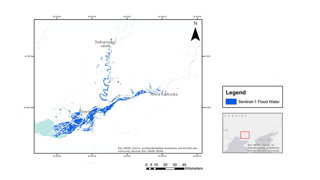
Do you have any advice for someone interested in your area of study?
"Geography is such a broad subject. One module you’re learning about climate change, geopolitics or business, the next you’re deep into geospatial analysis (which I’d never even heard of before university, but ended up basing my whole dissertation on!).
"My advice would be to stay curious and open-minded. It can be challenging at times, but the variety and relevance of what you study makes it a really rewarding subject."
Sign up to our newsletters
We regularly host exhibitions as well as in-person and online events, including our Monday night lectures (members only) and regional events.
Would you like to stay up to date about our upcoming events and news? Log in, or create an account, and sign up for our newsletter.
